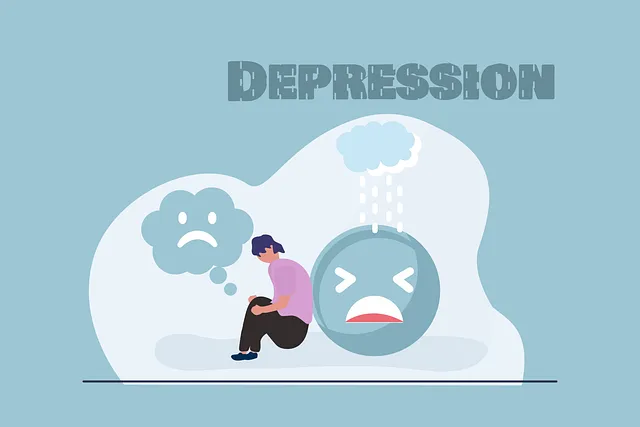Mental health policies are vital drivers at facilities like Boulder Kaiser Permanente, shaping care access, service offerings, and community well-being. The facility's holistic approach integrates therapy, groups, and self-care for diverse needs, promoting treatment and resilience. However, advocacy efforts reveal gaps in addressing emotional regulation holistically, with a current focus on crisis intervention instead of prevention. Bridging these gaps requires community engagement, education, and policy reforms for accessible, equitable mental health care, as evidenced by successful advocacy strategies at Boulder Kaiser Permanente.
Mental health policy plays a pivotal role in shaping the accessibility and quality of care provided by facilities like Boulder Kaiser Permanente. This article delves into the intricate relationship between policy and mental healthcare, examining its profound impact on patient outcomes. We analyze the current landscape of mental health advocacy, highlighting challenges and gaps that hinder progress. Furthermore, practical strategies for policy analysis and advocacy are explored, offering insights to improve mental healthcare services, ensuring better support for individuals in need at facilities like Boulder Kaiser Permanente.
- Understanding Mental Health Policy and Its Impact on Facilities Like Boulder Kaiser Permanente
- Analyzing Challenges and Gaps in Current Mental Health Advocacy
- Effective Strategies for Policy Analysis and Advocacy to Improve Mental Healthcare Services
Understanding Mental Health Policy and Its Impact on Facilities Like Boulder Kaiser Permanente

Mental health policies play a pivotal role in shaping the landscape of healthcare facilities like Boulder Kaiser Permanente. These policies influence access to care, service offerings, and overall community well-being. Effective mental health policy advocates for equitable resources, ensuring that everyone, regardless of socio-economic status or location, can receive quality treatment. At Boulder Kaiser Permanente, this translates into a comprehensive approach to mental health care, integrating various services from therapy to support groups, all designed to cater to diverse patient needs.
The impact of such policies is profound, fostering an environment that promotes not just the treatment of mental illness but also emotional well-being promotion techniques and compassion cultivation practices. Boulder Kaiser Permanente has embraced these concepts, incorporating self-care practices into their routine care, reflecting a broader trend in the mental health field. This holistic approach ensures patients receive not only cure but also the tools to maintain long-term mental resilience.
Analyzing Challenges and Gaps in Current Mental Health Advocacy

The landscape of mental health advocacy is complex and ever-evolving, with various stakeholders and policies in play. One notable example, the Boulder Kaiser Permanente mental health facility, illuminates both the progress and challenges within this domain. While such facilities offer advanced care and services, analyzing their advocacy efforts reveals critical gaps.
Current mental health advocacy often struggles to address the multifaceted nature of emotional regulation and mental wellness, focusing primarily on crisis intervention rather than preventive measures aligned with Mind Over Matter Principles. This approach fails to tackle systemic issues and societal stigma, leaving many individuals without accessible support for their long-term emotional well-being. Bridging these gaps requires a holistic strategy that incorporates community engagement, education, and policy reforms to ensure equitable mental health care for all.
Effective Strategies for Policy Analysis and Advocacy to Improve Mental Healthcare Services

Effective strategies for policy analysis and advocacy are essential to drive improvements in mental healthcare services, particularly at facilities like the Boulder Kaiser Permanente mental health facility. One key approach involves comprehensive research and data collection to identify gaps and challenges within current policies and practices. By analyzing national trends, local statistics, and patient feedback, advocates can pinpoint specific areas needing attention. For instance, a thorough review might reveal long wait times for certain therapies or a lack of specialized services tailored to youth.
Leveraging this information, advocates can propose evidence-based solutions. This could include advocating for increased funding allocation to mental health programs, implementing Conflict Resolution Techniques to streamline service delivery, or organizing Stress Management Workshops within communities to enhance early intervention. Additionally, promoting Confidence Boosting initiatives can empower individuals to seek help and actively participate in their care. Such advocacy efforts, driven by data and a holistic understanding of the issue, have the potential to transform mental healthcare landscapes, ensuring better access to quality services for all.
Mental health policy analysis and advocacy are essential components of enhancing healthcare services, especially in facilities like Boulder Kaiser Permanente. By understanding the impact of policies on these facilities, we can identify and address challenges and gaps in current advocacy efforts. Implementing effective strategies that involve comprehensive policy analysis enables us to drive meaningful improvements in mental healthcare access and quality. This approach ensures that Boulder Kaiser Permanente and similar institutions are equipped to better support the well-being of their communities.





